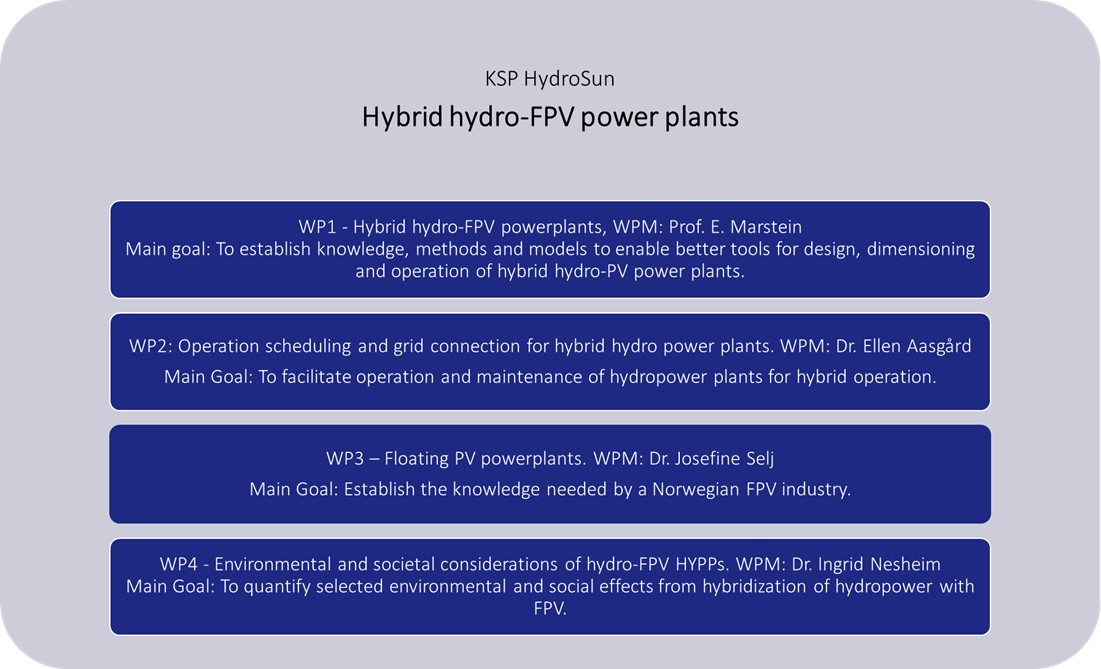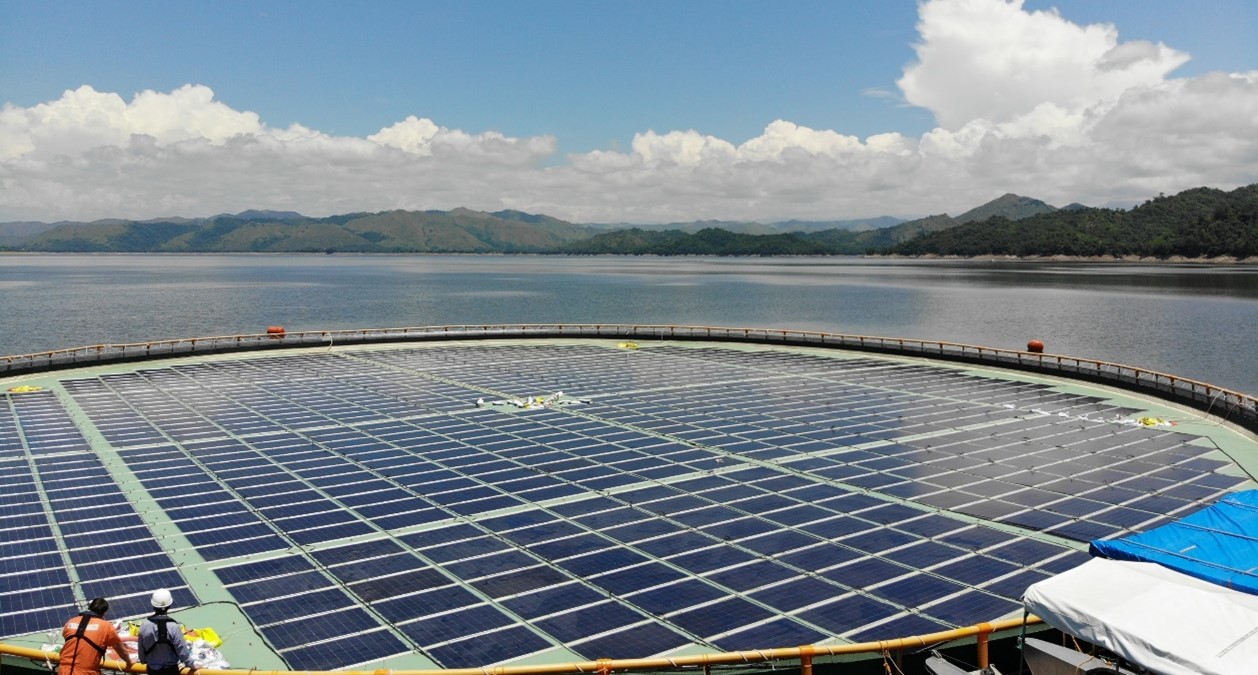HydroSun
In the project we look specifically at hydro-Floating PV (HyPPs), but the operational perspectives are just as relevant for the operation of land-based PV-hydro HyPPs. The basic principle of joint operation in HyPPs is to utilize the flexibility of hydro generators to smoothen the total production profile. Additional storage, short- or long-term, can add additional value. In the project we study cost-optimal dimensions and operation of the HyPPs, alone and with various storage technologies. We will also study the impact of prediction accuracy on the operation and the resilience of the HyPPs to uncertainties in market and climate.
The use of FPV imposes additional challenges compared to land-based PV. Although FPV has been growing rapidly the last four years, scientifically sound reports on performance, reliability and environmental aspects of various FPV technologies have just recently begun to emerge. There is a critical need of high-quality data and a robust validation of the suggested environmental impacts of this new technology.
The primary objective of HydroSun is to develop new data and establish the required knowledge basis for enabling robust, cost-efficient and sustainable development and operation of hydro-PV HyPPs.
Secondary objectives:
– To analyse resource complementarity between solar irradiation and water reservoir inflow for selected sites
– To evaluate the added value of storage alternatives and increased forecasting accuracy for HyPPs
– To evaluate the effect of the hybrid operation on the hydropower plant
– To develop methods that enable lifetime predictions of PV modules in FPV systems
– To provide the first empirical field data the environmental effects of hydro-FPV HyPPs
The four work packages in HydroSun are designed to perfectly fit the perceived knowledge needs of the Industry Project in this Green Platform application.

A rapid increase in the deployment of renewable energy is needed to meet the global policy goals. In the future, issues related to intermittency, but also land access and sustainability, are expected to become increasing challenges. Hybrid power plants can answer to many of these challenges. Currently, however, the number of large-scale hybrid power plants in operation is very limited. Business cases for hybridization are still being developed, and in most markets, it is simply unclear under what resource and market conditions hybrid power plants are economically viable. Through this project we will develop methods to valuate and quantify the potential economic and grid operational value of the social, environmental, and resilience benefits of hybrid power plants. We will study hydro-FPV hybrid power plants, but the operational perspectives of are just as relevant for operation of land-based PV. We will study the cost-optimal dimensions and operation of hybrid power plants, alone and with various storage technologies. We will also study the impact of prediction accuracy on the operation and the resilience of the hybrid plants to uncertainties in market and climate.
The use of FPV imposes additional challenges compared to land-based PV. Although FPV has been growing rapidly the last four years, scientifically sound reports on performance, reliability, and environmental aspects of various FPV technologies have just recently begun to emerge. There is a critical need of high-quality data and a robust validation of the suggested environmental impacts of this new technology. This project aims to provide high-quality data on performance, reliability, and environmental impact of FPV and through this accelerated the adoption of FPV globally.
The project is financed by the Norwegian Research Council.

